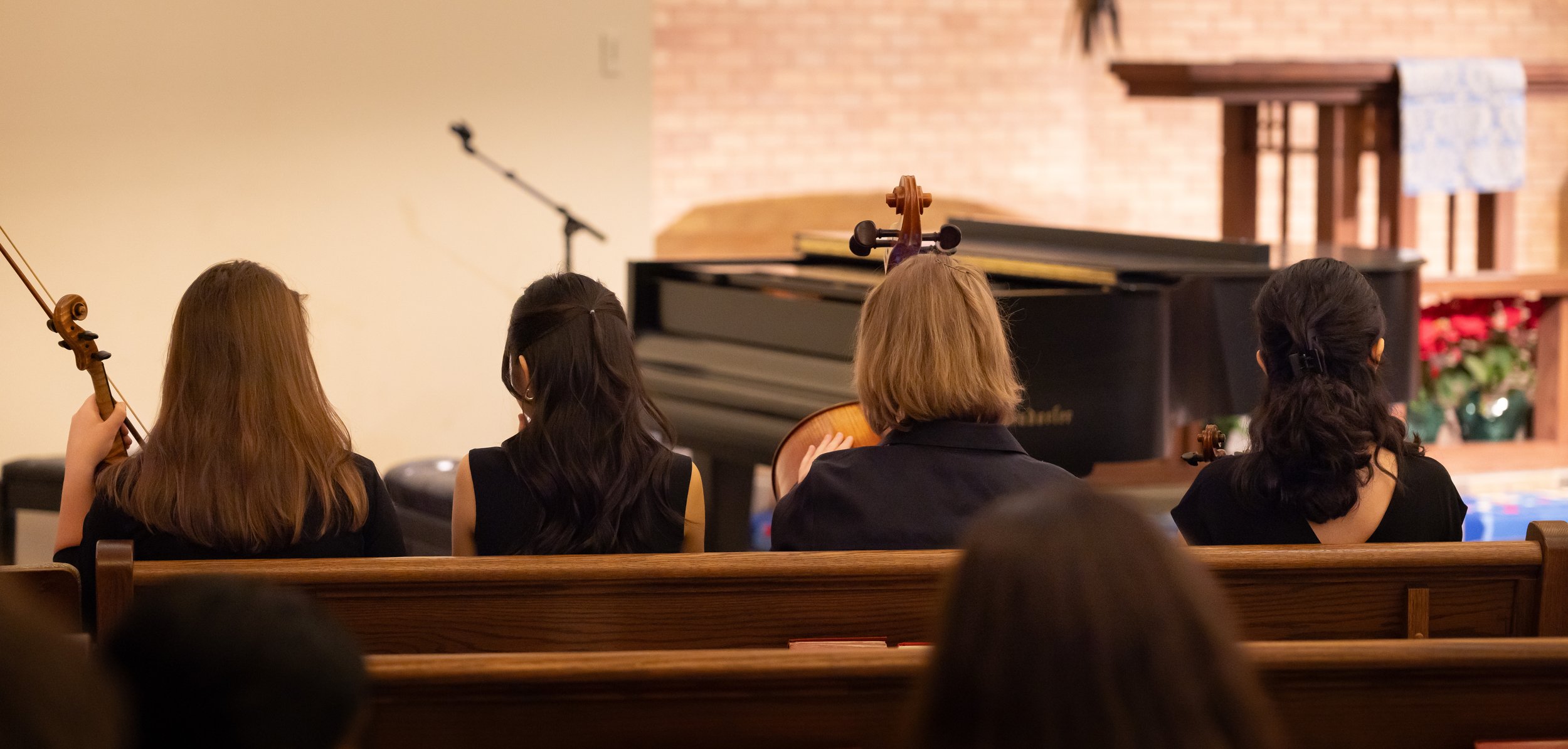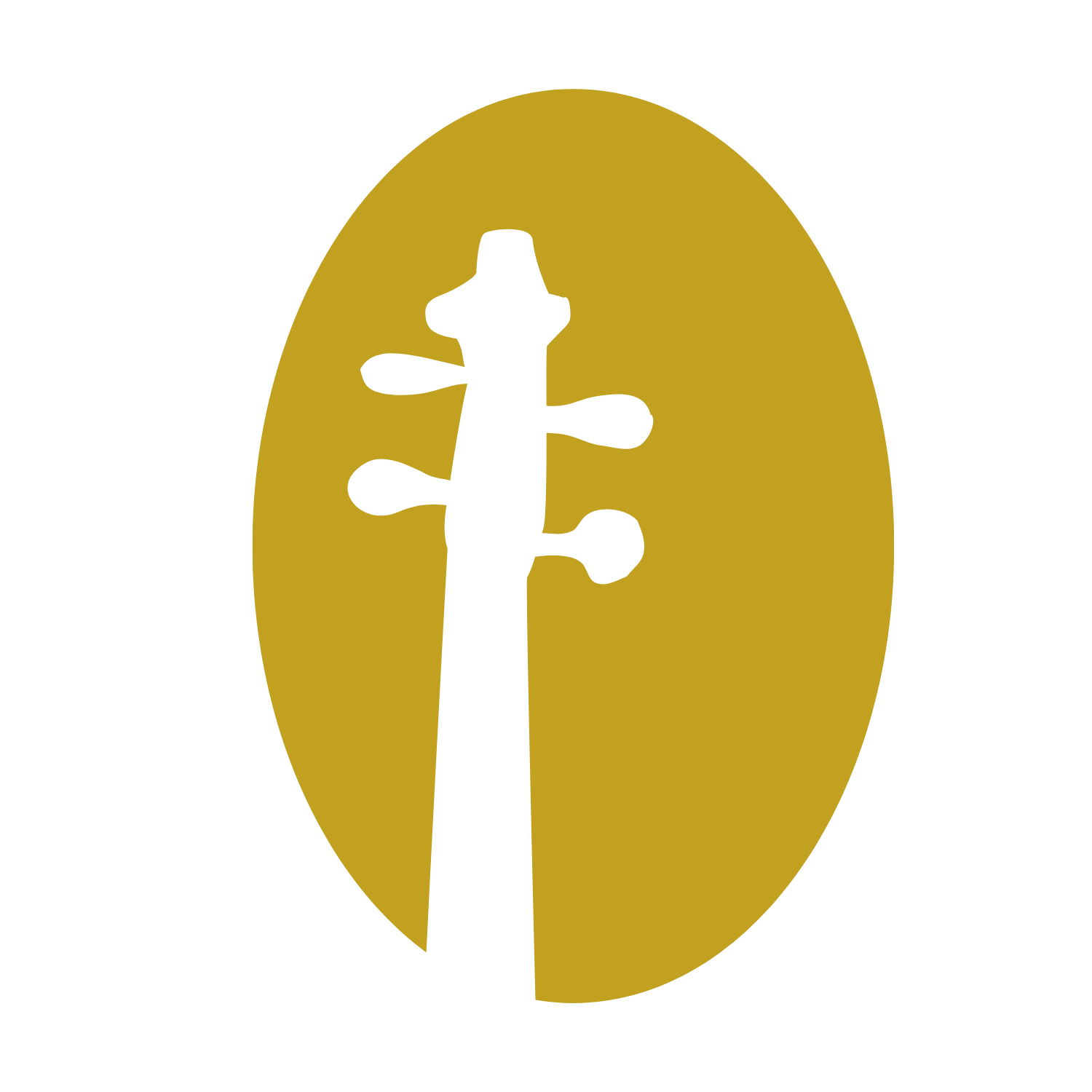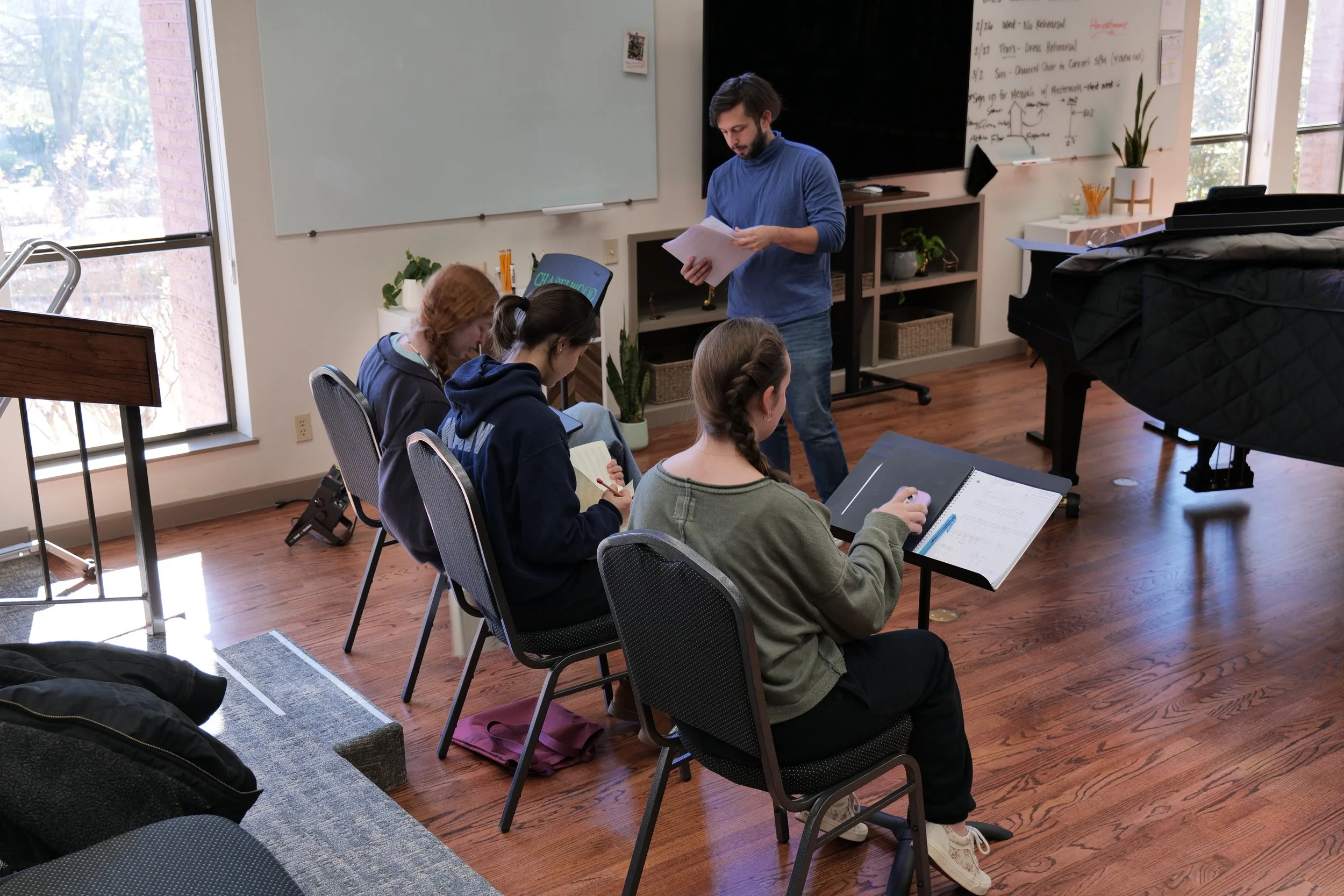
MUSIC
THEORY
Enrollment Deadline
Music Theory enrollment is limited to 30 students in total. Students who enroll for the full year are given priority, and trimester enrollment is accepted on a first-come, first-serve basis. Enrollment deadlines are as follows:
Full year and Fall enrollment: EXTENDED to August 25, 2025
Winter enrollment: November 1, 2025
Spring enrollment: February 1, 2026
Enroll now to secure your spot!
About
Music making is a communal activity. No one wants to spend their entire life only playing by themselves for themselves. Music theory gives us a language to communicate with others. It helps with chamber music rehearsals, helps us understand how to play in tune, as well as understand our part’s relationship to others. It is essential.
Our curriculum is a distillation of ABRSM, AP Music Theory, and college level music theory presented in a user-friendly fashion that teaches students to develop a deeper understanding of topics while preparing them to be competent to take standardized tests or test out of college theory and aural skills classes (which could save them up to 8 semesters classes in some cases!).
Opus 1 Theory is designed to help students with music making. Our courses use a hands on approach so students can understand the concepts they learn through practice, no different than practicing their instrument. There are four levels: beginner, intermediate, advanced, and special projects.
-
This class is for anyone with absolutely no previous music theory experience. It focuses on the fundamentals of music. Rhythms, intervals, triads, seventh chords, and scales as well as solfeggio. This course builds a strong foundation to prepare students to succeed in the intermediate level. This course is distributed over three trimesters.
-
This course builds upon concepts learned in the beginner course. Students learn to apply those skills in doing Roman Numeral Analysis of chorales. They also learn to read and write using C-clefs (a necessary skill for any chamber musician). Two projects are assigned per trimester where students are asked to apply their theory skills through composing a short piece to play with their peers with the possibility to even program pieces on an Opus 1 recital. This course is distributed over three trimesters.
-
This course builds upon concepts learned in the beginner and intermediate courses. Students learn chromatic harmony, sonata form theory, modes, and asymmetrical rhythms. This course is distributed over three trimesters.
-
Item descriptionFor those who have completed the Advanced Level courseand wish to continue their study of music theory. They may enroll in Special Projects as many times as they wish. This course focuses on specific topics of research they are interested in learning more about.
FAQs
-
Imagine you are an actor in a theatre. Everyday you perform in plays, but they are all in languages you do not understand. You’ve been coached on how to deliver the lines so that native speakers can understand, but to you, it is all meaningless. Doesn’t that sound unfulfilling? Performing western, classical music without any knowledge of music theory is like being that actor. Music theory is really a language we can use to describe music that we are playing and a method to understand it more efficiently. If you don’t speak it, you are missing out.
-
Music theory allows us to fully engage with the music we play at an intellectual and emotional level. Genuine understanding of not only how to play music, but how the music works makes sure as players we don’t fall into the trap of ‘MMMM’, or ‘Muscle Memory Music Making’. We can practice a piece a thousand times without understanding what we are playing. Understanding the music we play makes our practice more effective and performances more meaningful.
-
If you are new to music theory, we recommend starting at our beginning level. If you have prior experience with music theory, you will be given the opportunity to test into the intermediate or advanced levels at the start of each trimester.
During the year, beginner and intermediate students are able to move up levels by obtaining an 80% or higher on their final exam to pass. Students may retake exams if needed.
-
Music Theory courses take place on Saturday afternoons at Chapelwood United Methodist Church (11140 Greenbay St Houston, TX 77024). General schedule is as follows:
Beginner: 12pm - 1pm
Intermediate: 1pm - 2pm
Advanced: 1pm - 2pm
Special Projects: scheduled as needed
For more a more specific trimester schedule, please view our Opus 1 Music Theory General Calendar.
-
Music Theory enrollment is limited to 30 students in total. Students who enroll for the full year are given priority, and trimester enrollment is accepted on a first-come, first-serve basis. Enrollment deadlines are as follows:
Full year and Fall enrollment: August 1, 2025
Winter enrollment: November 1, 2025
Spring enrollment: February 1, 2026
If all spots are full, you will be put on the waitlist in the event that a spot becomes available.
-
Tuition for the full year is $1,050 ($350 per trimester). Students who are also enrolled in chamber music through Opus 1 are offered a discounted tuition of $750 per year ($250 per trimester).
Invoices will be sent via email a few weeks before the start of class. Tuition is due by the first class of the year or trimester (depending on your enrollment type).
-
Financial aid at Opus 1 is need based, no questions asked. If you require assistance to participate in our program, please indicate "Yes," in your enrollment form and an Opus 1 Director will reach out to you via email.
-
All music theory students are excepted to maintain a regular routine of practicing aural skills with teoria online. Students submit their scores weekly. Many students often experience difficulty when starting aural skills. This is to be expected since improvement is only made through regular practice, just like any piece of music. Don’t let a ‘bad score’ discourage you, you will be amazed how it gradually improves over time! Just dedicate 5-10 minutes a day.
-Pencil
-Staff Paper Notebook
-3 Ring Binder
-Book: Tonal Harmony, Kostka Payne (used copies are available for very low cost on AbeBooks online) -
Our program is built on community and participation, so being present at all classes is essential. All absences must be communicated as far in advance as possible in order to receive recordings of missed classes.
Music Theory Faculty
-
Tian Qin
Music Theory Faculty
-

Paul Mortilla
Music Theory Faculty




